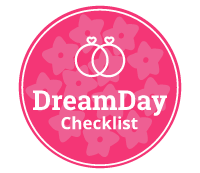Introduction
Welcome to the exciting world of wedding planning! It’s a magical time filled with love, anticipation, and dreams of a perfect day. One of the key aspects of planning a wedding is creating a budget that not only keeps your finances in check but also ensures that you have a beautiful and memorable celebration. In this article, we’ll explore how you can stick to your wedding budget without compromising on quality. Let’s dive in!
In this article you will find:
- Introduction
- Setting Your Budget
- Prioritizing Your Expenses
- Research and Negotiation
- DIY and Personal Touches
- Flexibility and Adaptability
- Conclusion
Setting Your Budget
Before you start booking vendors or buying decor, it’s essential to establish a realistic budget. Sit down with your partner and any family members who may be contributing financially to determine how much you can comfortably spend on your wedding. Consider all aspects of the wedding, from the venue and catering to the dress and flowers. Once you have a total budget in mind, break it down into categories to allocate funds accordingly.
Remember, your budget is a guiding principle, not a strict rule. Be prepared for unforeseen expenses and try to set aside a contingency fund for any surprises that may arise along the way.
Prioritizing Your Expenses
Not every element of your wedding will hold the same level of importance to you. Sit down with your partner and identify the top three priorities for your big day. Whether it’s a stunning venue, gourmet food, or a live band, knowing where you want to splurge will help you allocate your budget effectively. Once you’ve allocated funds to your top priorities, you can adjust the remaining budget for other aspects of the wedding.
By focusing on what truly matters to you as a couple, you can ensure that your wedding reflects your values and vision, even on a budget.
Research and Negotiation
When it comes to wedding planning, knowledge is power. Take the time to research vendors, venues, and other wedding essentials to find the best deals without sacrificing quality. Reach out to multiple vendors for quotes and be upfront about your budget constraints. Many vendors are willing to work with couples to create custom packages that suit their needs and budget.

Don’t be afraid to negotiate prices or ask for discounts. Remember, vendors want your business, and they may be willing to accommodate your budget if it means securing a booking.
DIY and Personal Touches
Injecting your personality and creativity into your wedding can not only add a unique touch but also save you money. Consider DIY projects for decor, favors, or even your wedding invitations. Get creative with family heirlooms, sentimental items, or personal touches that reflect your relationship.
By incorporating DIY elements and personal touches, you can reduce costs while creating a wedding that feels authentically you.
Flexibility and Adaptability
Wedding planning can be unpredictable, and things may not always go as planned. Stay flexible and be prepared to adapt to changes as you move through the planning process. If a particular vendor is out of your budget, look for alternatives. If a certain date or venue is unavailable, consider other options.
Remember, the most important thing is celebrating your love with your partner and loved ones. Stay focused on the big picture and be open to adjustments along the way.
Conclusion
Planning a wedding on a budget doesn’t mean sacrificing quality or style. By setting a realistic budget, prioritizing your expenses, researching and negotiating with vendors, incorporating DIY elements, and staying flexible, you can create a beautiful and memorable celebration without breaking the bank. Remember, your wedding is a reflection of your love story, so enjoy the planning process and savor every moment leading up to your special day!


